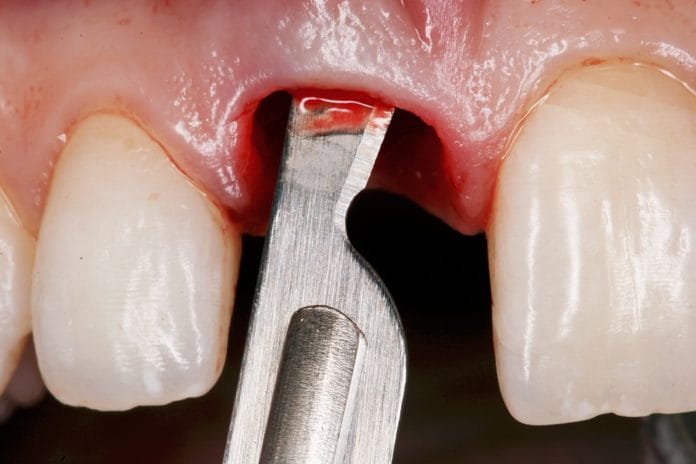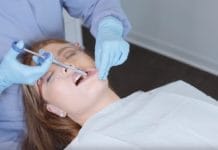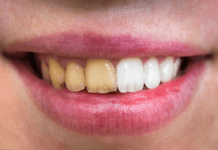In nearly all oral surgeries, blades are common tools. But these tools cannot distinguish between diseased and healthy tissues. And that’s why they may result in unnecessary damage, pain and longer recovery times.
It is also one of the reasons why a dental appointment often instills fear in most patients. Add the fear of surgery to that appointment, and most patients will not show up.
Now, a team of researchers reports that specialized nanotechnology could replace the blades thereby reducing the pain experienced and shorten recovery time. The team developed the treatment to deliver the collagenase enzyme to the affected area in the mouth.
The American Association of Orthodontists estimates that 5 million Americans undergo orthodontic procedures every year. And in some instances, patients’ teeth are so misaligned that surgery is necessary to cut the collagen fibers beneath the gingiva before fixing braces.
However, most patients often opt not to undergo the surgery because it’s invasive and painful. Over the years, researchers have been looking for ways to minimize the invasiveness and have turned to nanotechnology to offer targeted therapeutics.
Studies conducted in the past showed great results when liposomes are used to deliver targeted treatment. Liposomes are very tiny (nanoscale particles) vesicles commonly used to deliver drugs. The invention of the collagenase enzyme could, therefore, remodel the fibers joining teeth to the bone without the need for a scalpel.
But using liposomes to deliver enzymes has been challenging. The researchers, Avi Schroeder and team, wanted to create liposomes capable of delivering collagenase enzymes to targeted areas in the mouth through nanosurgery. The full research titled “Proteolytic Nanoparticles Replace a Surgical Blade by Controllably Remodeling the Oral Connective Tissue” appeared in the Journal of ACS Nano.
Methodology
The researchers first created liposomal nanoparticles that were rich in collagenase before conducting tests in rats. A similar test using conventional surgery was also conducted for comparison.
The researchers conducted the following assessments:
Inflammation Assessment
The rats’ gingival tissues were cut to investigate the damage caused by traditional surgery and nanosurgery treatments.
Weight Assessment
The wellbeing and behavior changes in the rats were monitored by checking their weights.
Results
When compared to ordinary surgery, the new treatment was three times faster. And just like humans, all rats lost some weight after surgery. But unlike conventional surgery, the rats treated with the liposomal nanoparticles recovered quickly to their healthy weight. The researchers said the quick recovery suggested the rats were not in pain.
How It Works
When placed under the gingiva, the collagenase diffused out of the liposomal nanoparticles. The diffusion was activated by calcium, which occurs naturally in the mouth. The enzyme works by weakening the collagen fibers, making it easier for dentists to shift the teeth afterward with braces.
The researchers proved that oral surgery could depend on natural tissue remodeling tools-collagenase enzymes. These are the same tools the body utilizes to repair and heal itself.
Apart from reducing pain and shortening recovery time, the treatment is also more likely to minimize allergic reactions and costs. More patients will also show up for regular visits, appointments, and dental treatments.
Clearly, the use of liposomal nanoparticles in oral surgery is still at a very early stage. But one thing is clear: it’s bound to redefine the industry in the future.
Oral surgery is a very common procedure in dental care. Patients suffering from impacted teeth, tooth loss, and jaw-related conditions will benefit immensely from the invention.
The research was funded by the European Research Council, German-Israeli Foundation for Scientific Research and Development, Israeli Ministry of Science Technology and Space, European Union, Israel Cancer Association, Mallat Family Foundation and Israel Ministry of Economy.










